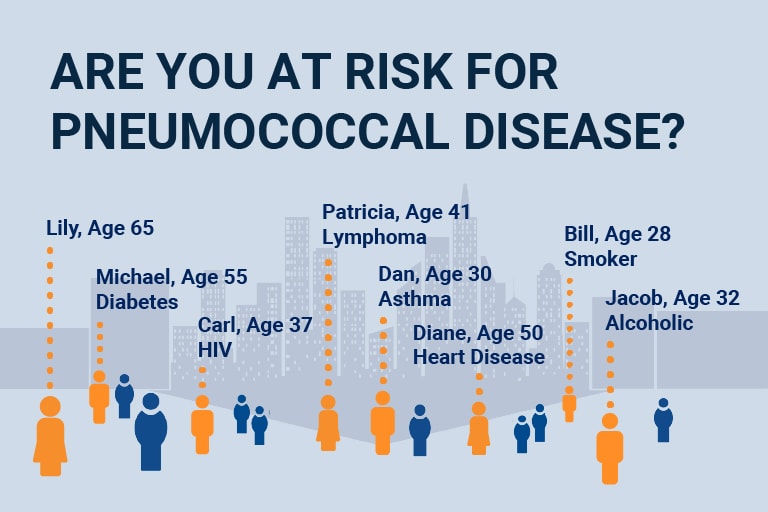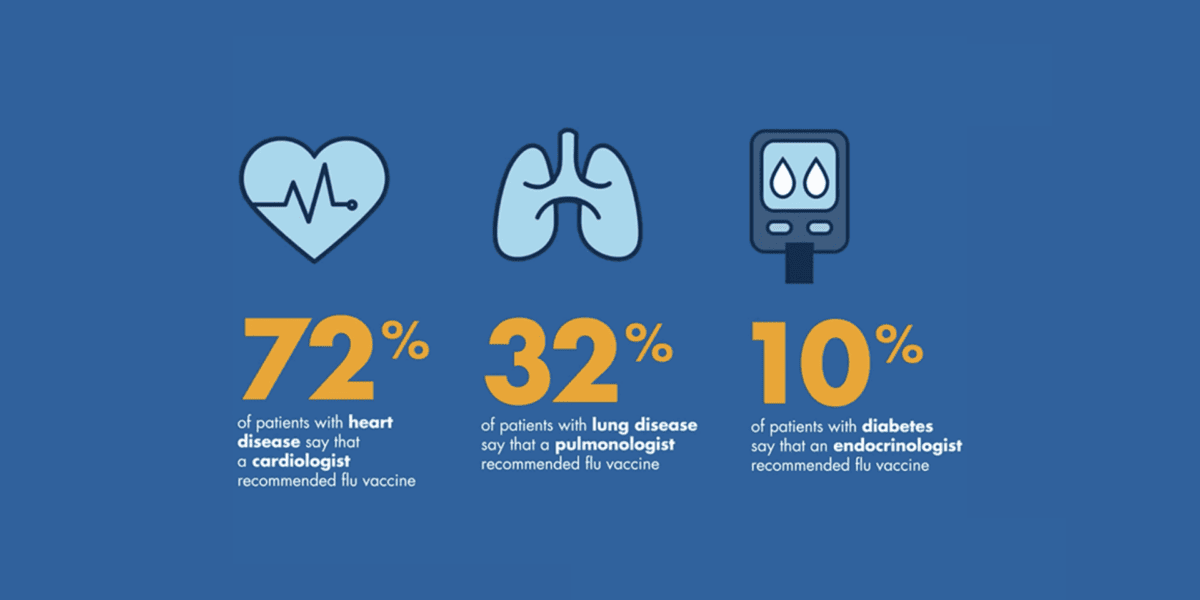
What you should know about pneumococcal disease
Myth:
Pneumococcal disease is not common nor serious.
Fact:
Pneumococcal disease is a very serious illness, with resulting infections being the most common cause of invasive bacterial infection in US children. Invasive pneumococcal disease and pneumonia kills thousands of people in the US each year, most of them age 65 years and older.
Myth:
Everyone who is a carrier of the bacteria causing pneumococcal disease will get sick from it.
Fact:
It is common for people, especially children, to carry the bacteria in their throats without getting sick from it.
Myth:
Only adults age 65 years and older are at risk for pneumococcal disease.
Fact:
Anyone can get pneumococcal disease. In addition to adults age 65 years and older, high-risk groups include individuals who smoke cigarettes and those with certain chronic health conditions, including those that weaken the immune system (HIV/AIDS, cancer, or damaged/absent spleen), cochlear implants, or cerebrospinal fluid (CSF) leaks. In addition, children under age 2 years and those with certain medical conditions are at increased risk.
Reviewed February 2023
Source: Centers for Disease Control and Prevention
Related Resources

Are You at Risk for Pneumococcal Disease?
Infographic on adults who are at risk for pneumococcal disease

Top 5 Reasons for Adults to Get Vaccinated for Pneumococcal Disease
Fact sheet on the importance of preventing pneumococcal disease in adults

2021 Chronic Health Conditions Surveys: Gaps between Healthcare Professionals and Adult Patients
NFID commissioned two national surveys in 2021 on flu and pneumococcal disease vaccination as well as communication between healthcare professionals and patients with chronic health conditions
